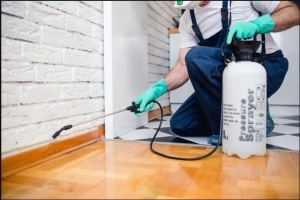Ensuring good indoor air quality is paramount for our health and well-being. Poor indoor air quality can lead to health issues, including respiratory problems, allergies, and even long-term complications. However, with some simple steps and adjustments, you can improve your home's air quality.
Regular Ventilation
Proper ventilation is the key to maintaining good indoor air quality. Make it a habit to open windows and doors regularly, especially when performing activities that generate indoor pollutants, such as cooking or cleaning. This means fresh outdoor air can circulate inside, flushing out stagnant air and pollutants.
Invest in Air Purifiers
Think about investing in air purifiers equipped with HEPA (High-Efficiency Particulate Air) filters. These devices can effectively capture airborne particles, such as dust, pollen, pet dander, and even some viruses and bacteria, helping to improve overall air quality.
Control Humidity Levels
Too much humidity can encourage dust mites and mold to grow, leading to indoor air quality issues and potential health risks. Use a dehumidifier to keep optimal humidity levels (ideally between 30-50%) in your home, especially in places that are prone to moisture buildup like bathrooms and basements.
Regular Cleaning
Regular cleaning is crucial for reducing indoor air pollutants. Make sure you vacuum carpets and rugs frequently to trap dust and allergens effectively. On top of this, dust surfaces, including shelves, furniture, and electronics, using microfiber cloths or damp rags to prevent dust from becoming airborne again.
Don't Use Harsh Chemicals
Many household cleaning products and air fresheners have strong chemicals that can emit volatile organic compounds (VOCs) into the air, which can cause indoor air pollution. Opt for eco-friendly, non-toxic cleaning products, or think about making your own using simple ingredients like vinegar, baking soda, and lemon juice.
Keep Plants Indoors
Indoor plants act as natural air purifiers. Plants, like spider plants, snake plants, and peace lilies, are known for their air-purifying properties, helping to remove toxins like formaldehyde, benzene, and xylene from the air.
Smoke-Free Environment
Smoking indoors can significantly degrade indoor air quality and pose serious health risks to both smokers and non-smokers alike. Establish a smoke-free environment within your home and ask family members and guests to smoke outdoors if they need to.
Proper Storage of Chemicals
Store household chemicals, such as paints, solvents, and pesticides, in well-ventilated areas away from living spaces. Ensure containers are tightly sealed to prevent leaks and minimize exposure to harmful vapors.
Regular HVAC Maintenance
HVAC systems are important for good indoor air quality. Schedule regular maintenance checks and filter replacements with professionals at apexcleanair.com to ensure your HVAC system operates efficiently and effectively removes airborne pollutants.
Limit Carbon Monoxide Exposure
Carbon monoxide (CO) is a colorless and odorless gas that is lethal in high concentrations. Get carbon monoxide detectors installed on every level of your home and ensure they are in good working condition. As well as this, avoid using unvented combustion appliances indoors, such as gas stoves or portable gas heaters, as they can produce CO.
By implementing these simple yet effective strategies, you can create a healthier indoor environment for you and your family. Prioritizing indoor air quality promotes better health and enhances overall comfort and well-being within your home.






